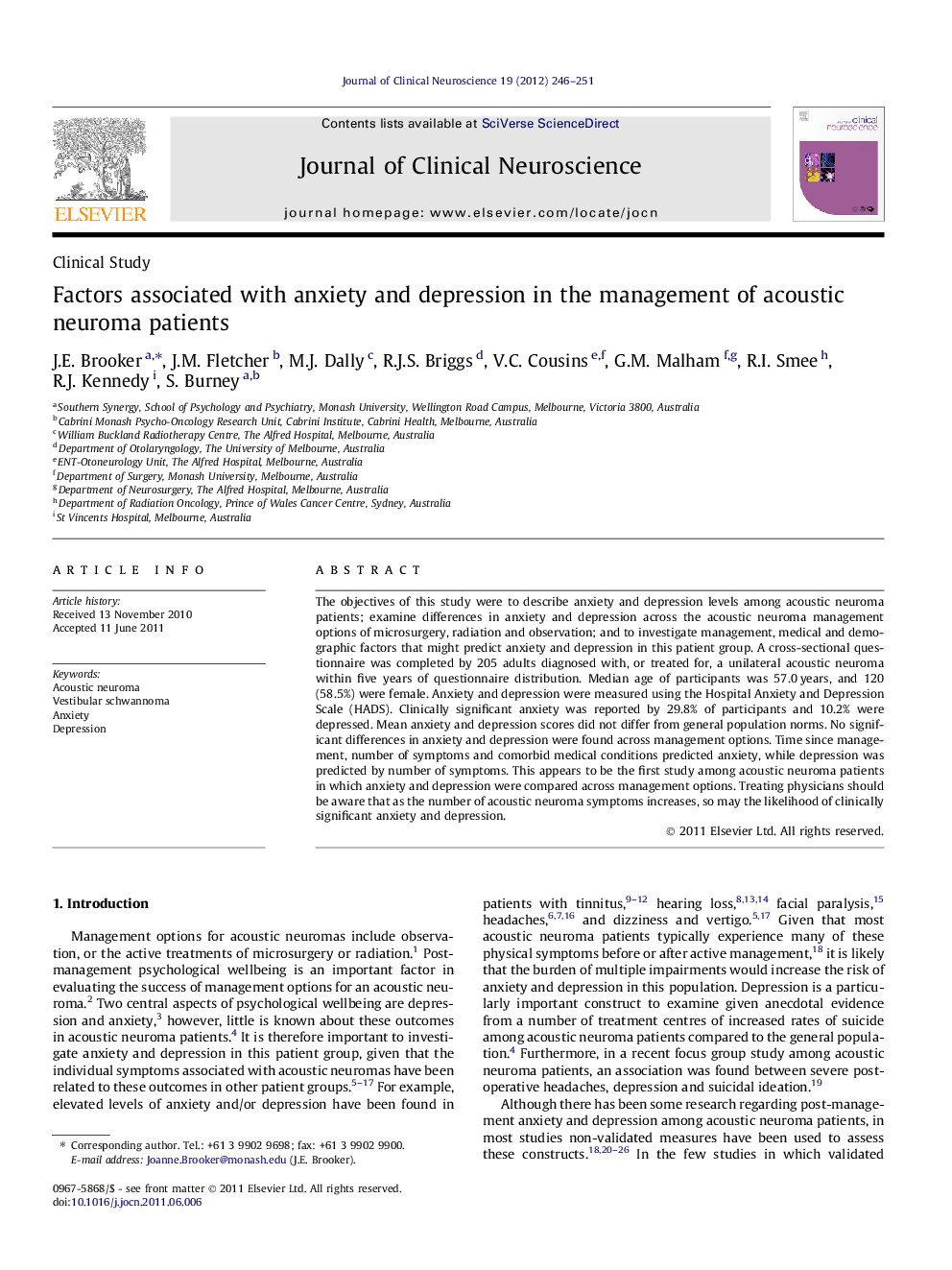| Article ID | Journal | Published Year | Pages | File Type |
|---|---|---|---|---|
| 3060836 | Journal of Clinical Neuroscience | 2012 | 6 Pages |
The objectives of this study were to describe anxiety and depression levels among acoustic neuroma patients; examine differences in anxiety and depression across the acoustic neuroma management options of microsurgery, radiation and observation; and to investigate management, medical and demographic factors that might predict anxiety and depression in this patient group. A cross-sectional questionnaire was completed by 205 adults diagnosed with, or treated for, a unilateral acoustic neuroma within five years of questionnaire distribution. Median age of participants was 57.0 years, and 120 (58.5%) were female. Anxiety and depression were measured using the Hospital Anxiety and Depression Scale (HADS). Clinically significant anxiety was reported by 29.8% of participants and 10.2% were depressed. Mean anxiety and depression scores did not differ from general population norms. No significant differences in anxiety and depression were found across management options. Time since management, number of symptoms and comorbid medical conditions predicted anxiety, while depression was predicted by number of symptoms. This appears to be the first study among acoustic neuroma patients in which anxiety and depression were compared across management options. Treating physicians should be aware that as the number of acoustic neuroma symptoms increases, so may the likelihood of clinically significant anxiety and depression.
